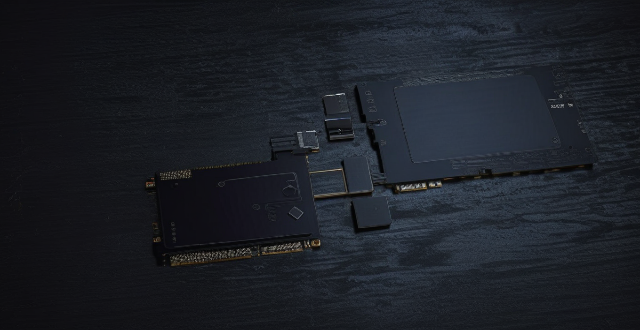The computer processor, or CPU, is the main component responsible for executing instructions and performing calculations in a computer system. Its performance is determined by factors such as clock speed, number of cores, cache size, and instruction set. There are various types of processors, including x86, ARM, and RISC, each with their own advantages and uses. The processor's performance significantly impacts the overall functionality of the computer, affecting tasks from running programs to multitasking capabilities.

What is a Computer Processor?
A computer processor, also known as a CPU (Central Processing Unit), is the brain of a computer system. It is responsible for executing instructions and performing calculations that are necessary to run programs and operating systems. The processor is typically located on a single chip called a microprocessor, which is housed on the motherboard of a computer.
Key Features of a Computer Processor
The performance of a computer processor can be determined by several key features:
- Clock Speed: The clock speed, measured in GHz (gigahertz), determines how many cycles per second the processor can execute. A higher clock speed generally means faster processing.
- Number of Cores: Modern processors often have multiple cores, allowing them to perform multiple tasks simultaneously. This can significantly improve multitasking and parallel processing capabilities.
- Cache Size: The cache is a small amount of fast memory built into the processor. A larger cache can improve performance by storing frequently used data and reducing the need to access slower main memory.
- Instruction Set: The instruction set refers to the specific set of commands that the processor can understand and execute. Different processors may have different instruction sets, which can impact compatibility with certain software.
Types of Computer Processors
There are several types of computer processors available, including:
- x86 Processors: These are the most common type of processors used in desktop and laptop computers. They are designed to work with the x86 instruction set and are compatible with a wide range of software.
- ARM Processors: These are commonly used in mobile devices such as smartphones and tablets. They are designed for energy efficiency and low power consumption.
- RISC Processors: These are used in specialized applications such as embedded systems and high-performance computing. They are designed for simplicity and efficiency.
Importance of a Computer Processor
The computer processor plays a critical role in determining the overall performance of a computer system. A faster processor can handle more complex tasks and run programs more efficiently, resulting in improved performance and responsiveness. Additionally, a modern processor with multiple cores can handle multiple tasks simultaneously, allowing for better multitasking and parallel processing capabilities.
In conclusion, a computer processor is a crucial component of any computer system. Its performance is determined by several key features, including clock speed, number of cores, cache size, and instruction set. There are different types of processors available, each with its own advantages and disadvantages. Ultimately, the choice of processor will depend on the specific needs and requirements of the user.